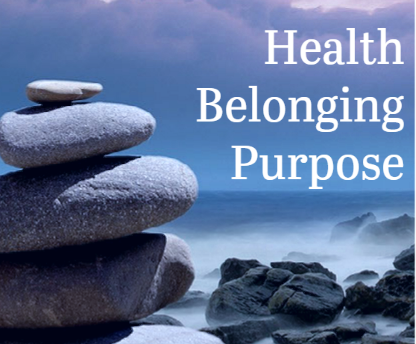
Insight: Well-Being at EPS
By Paul Hagen, Director of Student Well-Being
Humans have been pursuing personal and community well-being for a long time. Ancients across the globe bathed in hot springs, sought health from healers, created religions, laughed together, and built tight-knit social connections. The practice of yoga was developed some 5,000 years ago in northern India as a way to achieve spiritual, physical, and emotional wellness. Aristotle extolled the virtues of eudaimonia—a sense of fulfillment and flourishing—nearly 2,500 years ago. The ancients aren’t alone in their desire to live well. We all want to thrive. This primal desire for wellness has led to several multi-billion-dollar industries (think health food stores, specialty gyms, mental health clinics, and diet programs). In recent years, thousands of books have been published promoting physical and mental health alone. And thousands more focused on relationship health, financial health, community health…. There are TED Talks, magazine articles, apps, and TV shows to help us meditate, manage our stress, eat better, build friendships, find our purpose, and live longer.
With all this focus on well-being, why are so many of us feeling so unwell? And what can we do about it? These are complex questions, and I won’t pretend to have the answers. But I can share what well-being means to us at EPS and how we foster it among our students.
This year our focus on well-being falls into three large domains: Health, Belonging, and Purpose. Students’ physical and emotional health is an important element to well-being at EPS and is supported through SEL programing in advisories, health curriculum in various classes, and exceptional access to mental health counselors, school nurses, and advisors. Additionally, a sense of belonging—being seen, known, and accepted—is fundamental to student well-being here. At EPS we work to ensure that every student is known and that healthy relationships are fostered. School is about a lot more than academic achievement. Finally, we all need purpose to feel truly fulfilled. Helping students discover their purpose—inspiration, passion, meaning—is at the heart of an EPS education. When students learn a new skill, find a new interest, serve others, or imagine their future vocation, they are in the process of discovering their life’s purpose. Our job is to expose students to all the possibilities the world has to offer and encourage them as they find their own path to a purposeful life.
Health, Belonging, and Purpose are the cornerstones of well-being at EPS, and well-being is a cornerstone of an EPS education. Well-being, however, can be illusive. Just when we think we have it in our grasp, it slips from our fingers. We may feel healthy and whole in one area of well-being, while we feel weak and broken in another. We might experience weeks of thriving followed by dark days of despair. Life is complicated and hard. Which is why resilience—which I wrote about in October—is such a valuable life skill to teach and to practice. We cannot promise, nor should we expect only blue skies. Clouds will roll in and difficulties will arise. When they do, we are here to encourage our students to keep going, and we offer supports to help them do just that. With health, belonging, and purpose—along with a strong dose of resilience—students will thrive at EPS and beyond.

